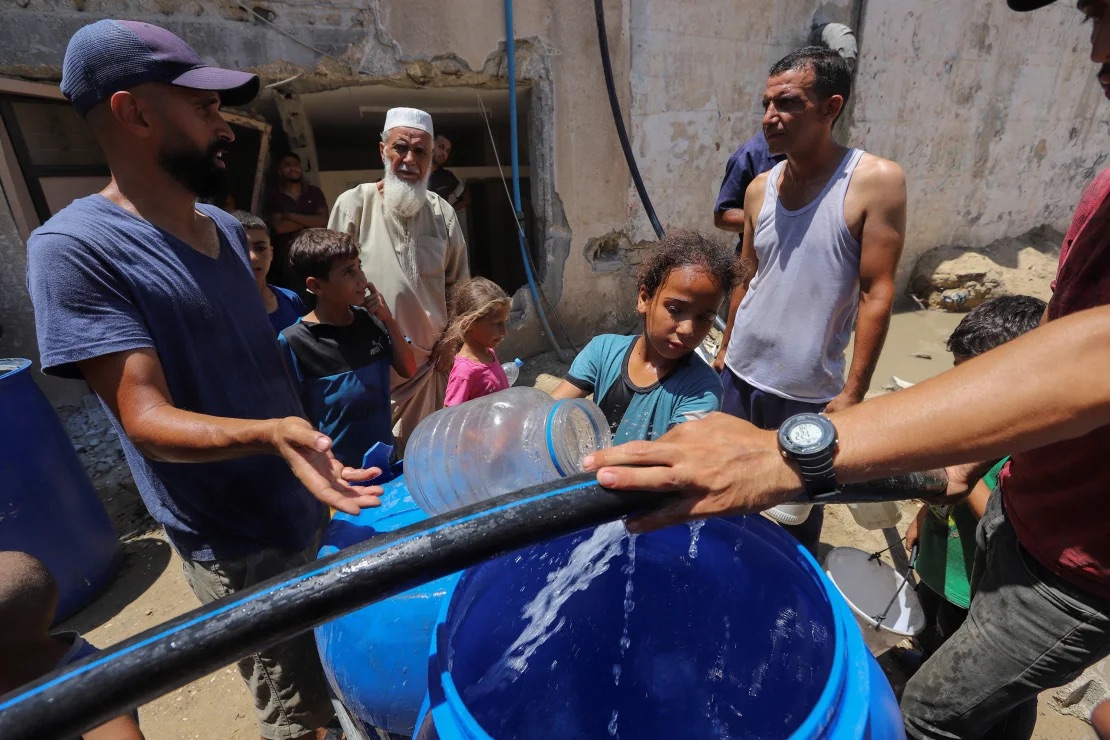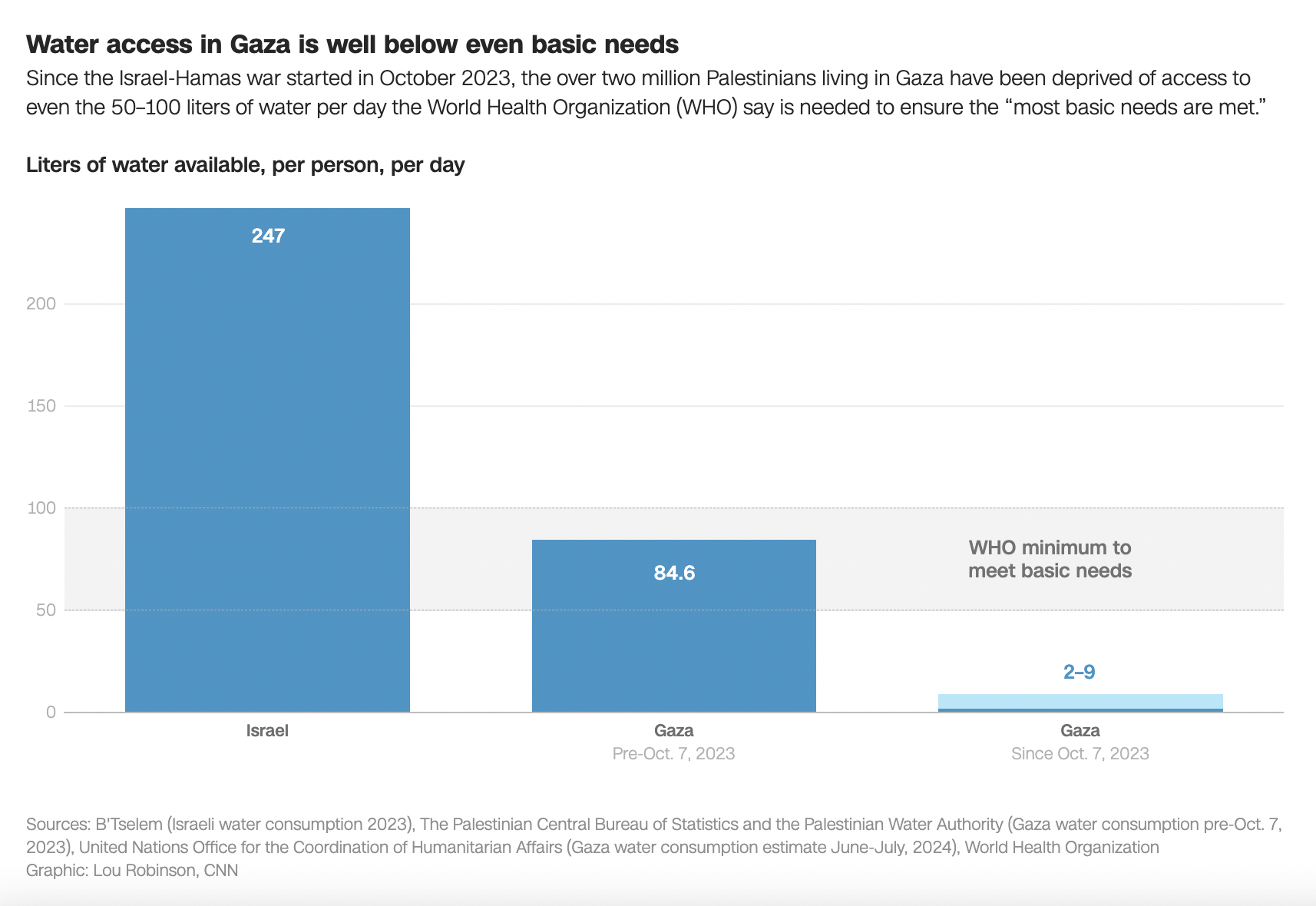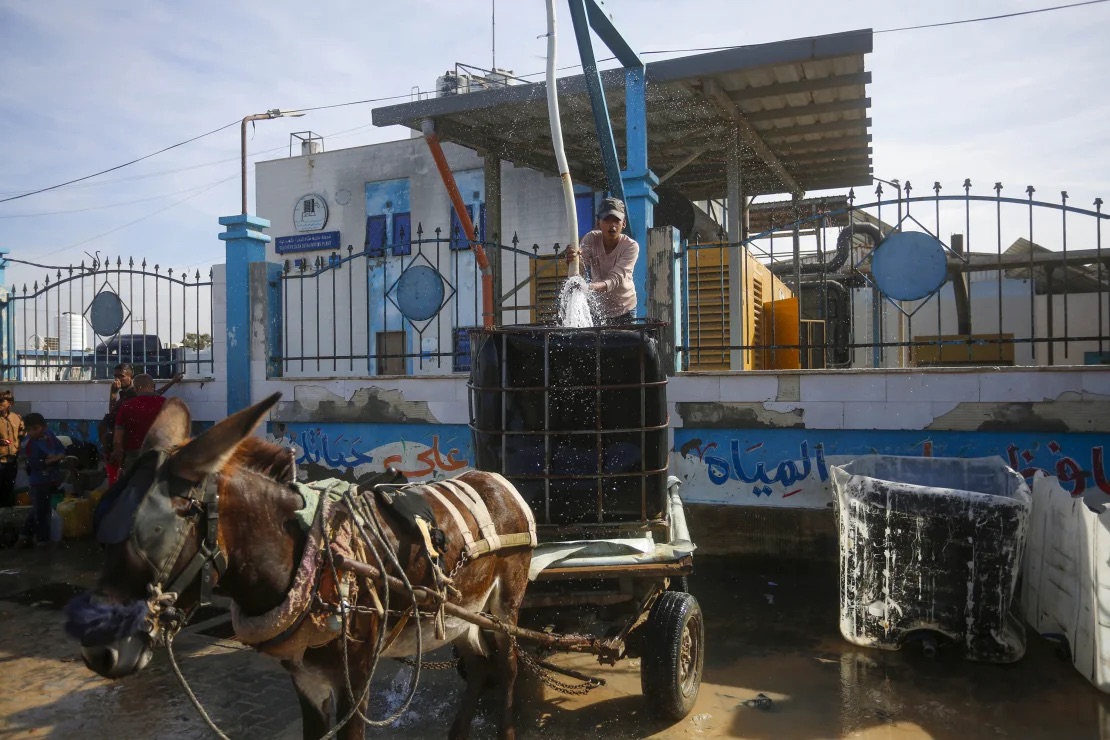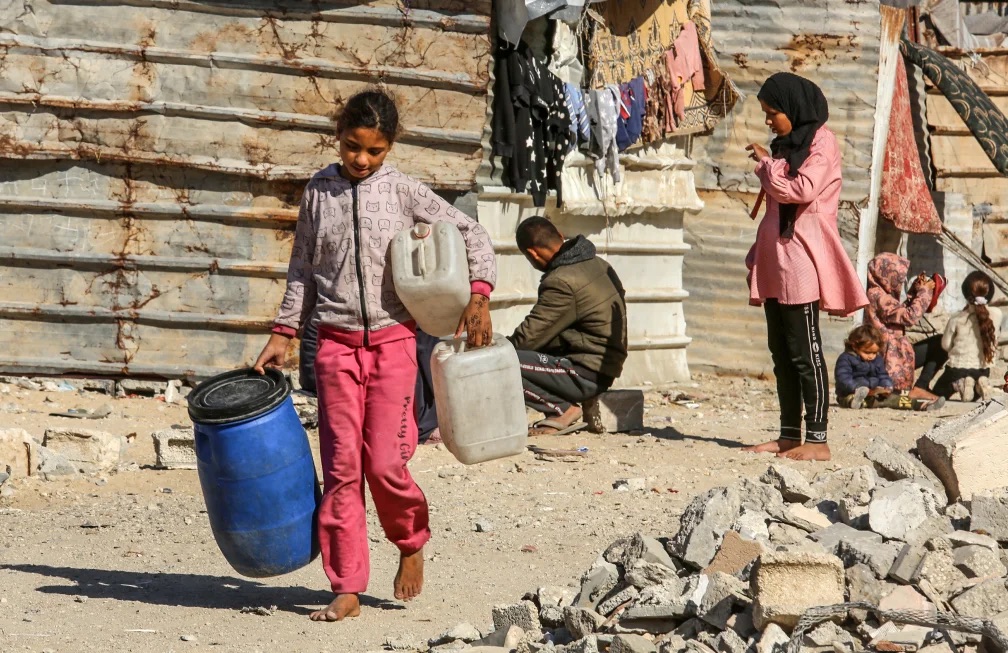TEL AVIV, Israel — Human Rights Watch, HRW, released a report on Thursday, December 19, 2024, accusing Israel of committing “acts of genocide” against Palestinians in Gaza by denying them access to adequate water supplies.
The report alleges that between October 2023 and September 2024, Israeli authorities obstructed the flow of water and humanitarian aid, contributing to thousands of deaths and widespread disease.
Israel has categorically denied the accusations, calling the report “full of lies.”
A spokesperson for the country’s foreign ministry insisted that water and humanitarian aid have continued to flow into Gaza, maintaining that there are “no water problems in Gaza.”
The Biden administration also disagreed with HRW’s findings but acknowledged the need for improved water access.
“We are continuing to press Israel on this issue,” State Department Deputy Spokesperson Vedant Patel said during a briefing.

Water Crisis in Gaza
According to HRW, over 2 million Palestinians in Gaza are unable to access safe drinking water, with most of their available water sources deemed unsafe.
WHO guidelines suggest a minimum of 15–20 litres per person per day in emergency situations, but HRW claims Gazans are receiving far less, resulting in severe consequences.
The crisis has been compounded by conflict-related damage.
The World Bank estimates that 84% of Gaza’s water and sanitation infrastructure has been damaged or destroyed, including critical pipelines and reservoirs.

Disease and Death
The lack of clean water has led to outbreaks of preventable diseases, including polio, which was detected in Gaza for the first time in 25 years.
Overcrowding and unsanitary conditions have also exacerbated bacterial infections, such as diarrhoea.
A Gaza resident told HRW, “I was getting sick, my kids were vomiting and had diarrhoea … This was from the moment we started drinking the dirty water.”
HRW has described the water crisis as a deliberate act by Israeli authorities to inflict harm on Palestinians.
The group says the measures meet the definition of genocide under international law, citing the Rome Statute of the International Criminal Court.

Israel’s Response
Israeli officials have rejected HRW’s claims. Col. Abdullah Halabi, head of Israel’s Coordination and Liaison Administration for Gaza, stated, “We are facilitating water from the Israeli side via three big pipes to the north, central, and south of Gaza. There’s no water problem in Gaza.”
The Israeli foreign ministry spokesperson Oren Marmorstein echoed this, saying, “Israel has facilitated the continuous flow of water and humanitarian aid into Gaza and ensured key water infrastructure remains operational.”
Calls for Accountability
HRW’s findings add to a chorus of international concerns about the humanitarian situation in Gaza.
In November 2023, UN special rapporteur Pedro Arrojo-Agudo described Israel’s actions as a “brazen breach of international law,” warning of the catastrophic impact of prolonged water deprivation.
The report arrives amid faltering ceasefire negotiations between Israel and Hamas, with both parties engaged in indirect talks in Qatar.
While a Hamas official described the discussions as “positive and optimistic,” an agreement remains elusive.
A Broader Context
The water crisis in Gaza is emblematic of the severe humanitarian challenges in the region as the Israel-Hamas conflict continues.
With nearly 45,000 Palestinians killed and 106,000 injured since October 2023, according to the Palestinian Ministry of Health, the situation underscores the devastating toll of prolonged conflict on civilian populations.
As international pressure mounts, questions remain over how water access and humanitarian aid can be secured in one of the most densely populated and beleaguered regions in the world.







